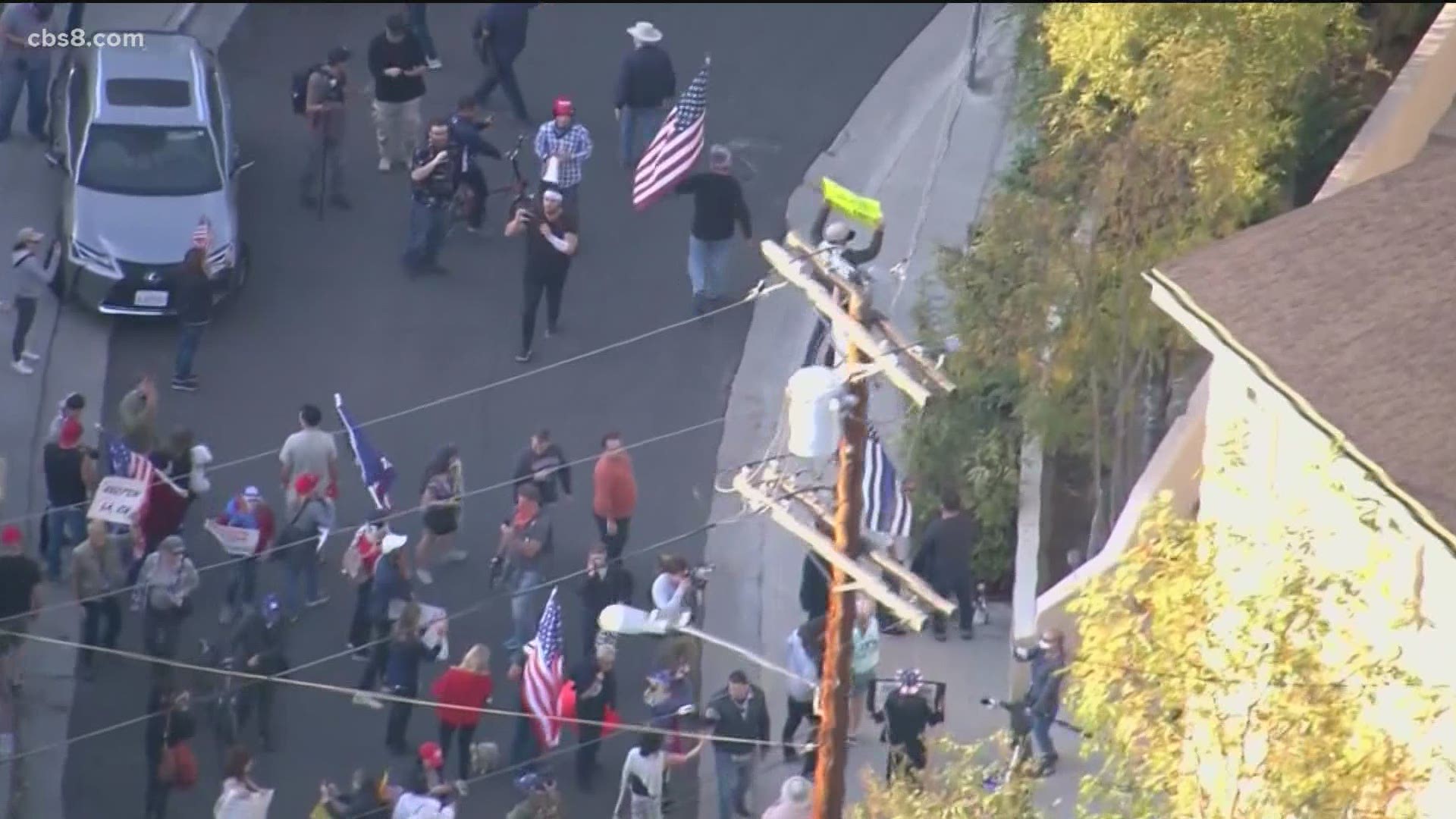LOS ANGELES — Amid a surge in coronavirus cases across the country and here in San Diego, new restrictions are going into place in parts of Southern California.
Los Angeles County's new temporary stay-at-home order takes effect Monday. Health officials are urging residents to only gather with members of their own household. They're also being asked to stay at home as much as possible and wear a mask when they go out.
But some are pushing back.
On Sunday, a group of protestors gathered outside the home of Los Angeles County's Director of Public Health Dr. Barbara Ferrer. They argued against the new restrictions. They waved flags and held signs. Police remained at the home as a precaution.
Though officials have banned most gatherings they've stopped short of a full shutdown on retail stores and other non-essential businesses.
"The simple act of gathering with people outside your household puts everyone at risk. We know that as many as half of the people who are infected with COVID-19 have few or no symptoms," said Dr. Ferrer during a news conference over the weekend.
The restrictions in LA are more strict than San Diego.
Indoor retail businesses are allowed to remain open but with just 20% of capacity, including nail salons and other personal care services. Schools and day camps can remain open except for those that have three or more COVID-19 cases over 14 days.
Restaurants in Los Angeles already were recently barred from in-person dining. They can still offer pickup, delivery and takeout services.
Church services and protests are exempt from the restrictions, which the county says are constitutionally protected rights.
Daily cases numbers in California have set records in recent days. Hospitalizations statewide have increased more than 80% in the last two weeks.
In San Diego, officials urged residents not to gather for Thanksgiving with people outside their household and to choose outdoor gatherings rather than indoor.
Los Angeles officials urged the same.
"The big unknown here is and what actions were people taking over this long holiday weekend?" said Dr. Ferrer.
Officials say it usually takes two to three weeks for such serious cases to show but about 12% of those infected could wind up hospitalized.
Los Angeles' new temporary stay at home order runs through Dec. 20.

